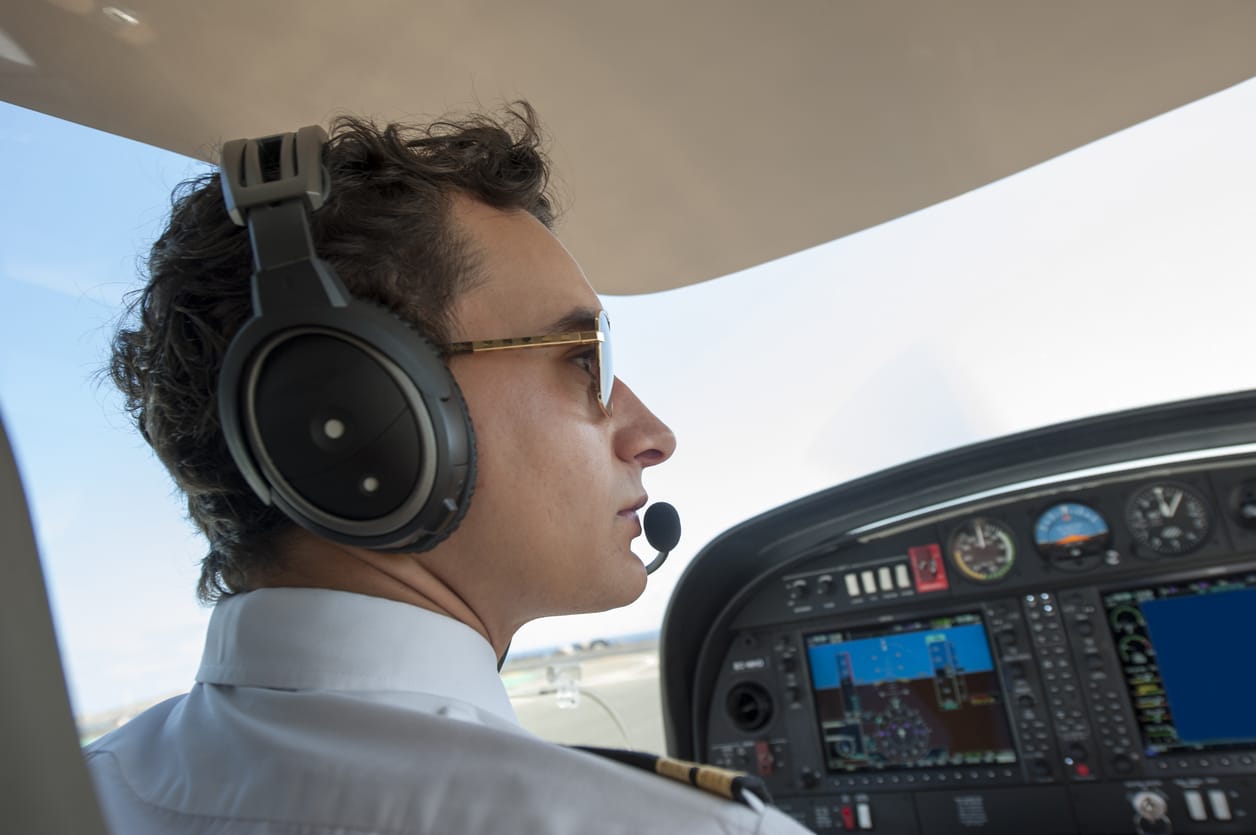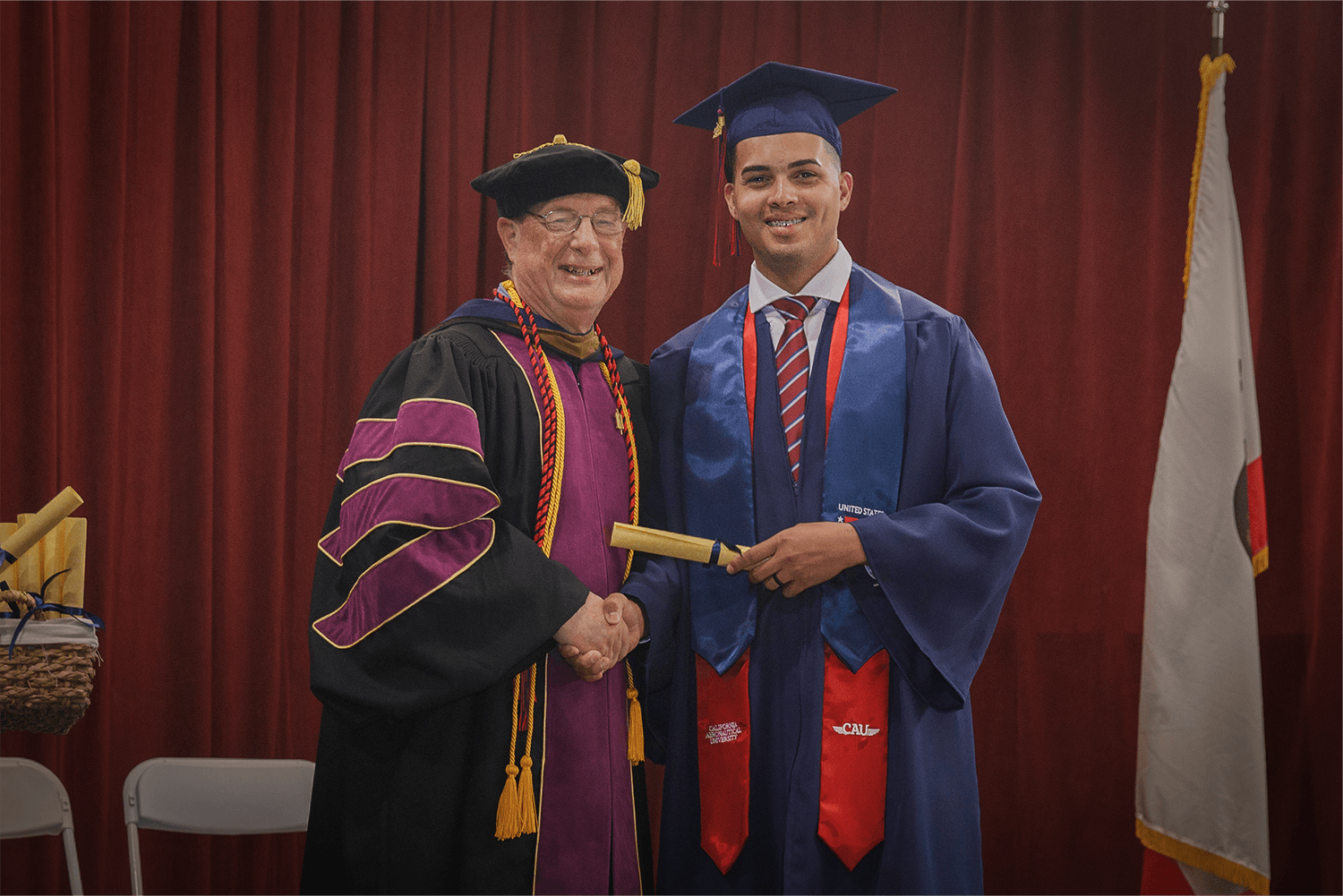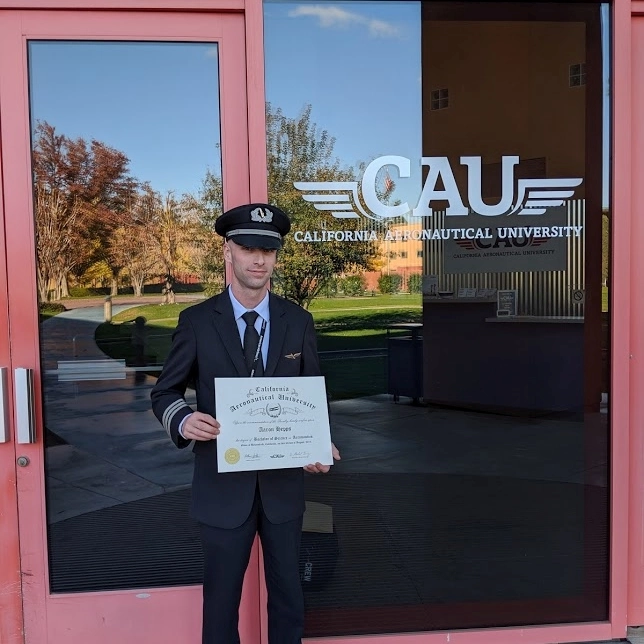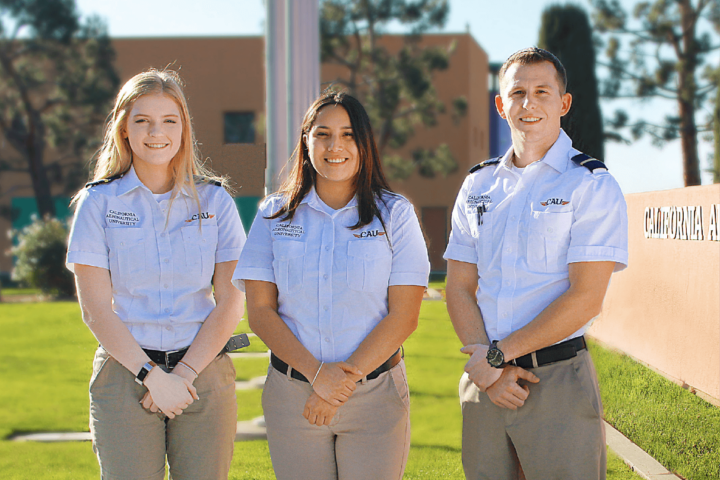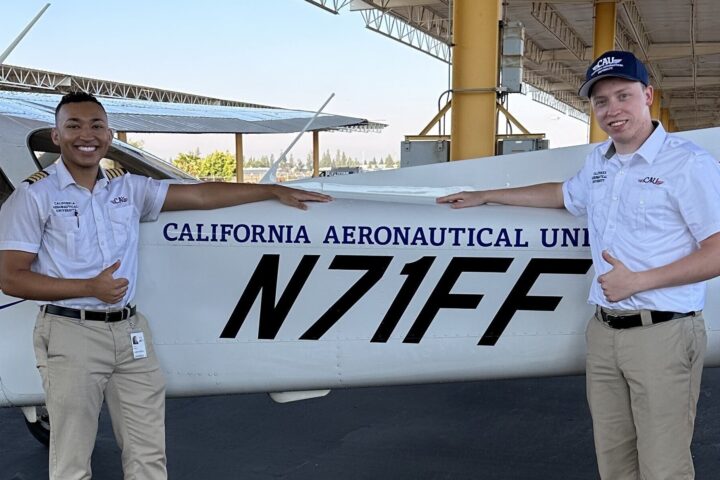When you are excited about becoming a pilot, it can be challenging to decide your goals and which type of aviation license is right for you.
Many members of the general public use the term “pilot’s license” without understanding what these ratings and certificate truly mean. As you learn more about what is possible in the world of aviation education, becoming knowledgeable about the difference in these career benchmarks helps you to plan financially, map out a course schedule, and communicate to others about how you are progressing in your plan to become a pilot.
[lwptoc numerationSuffix=”dot” title=”CONTENTS” titleFontSize=”35px”]
Which Aviation License Should You Get?
Whether you would like to fly occasionally for fun or every day as a professional, a Federal Aviation Administration (FAA)-licensed education center can help you clarify your aviation intentions—even if they change over time.
Private Pilot Certificate
When most people outside of aviation mention “getting a pilot’s license,” this is usually what they mean: Earning the private pilot certificate. In the flight operations world, this type of aviation license is usually referred to as “getting the private.”
Obtaining a private certificate is traditionally the first step professional pilots take in their career journey. It can be obtained at the age of 17 by those who can demonstrate command of the English language, complete the requirements of a medical certificate, complete required hours and pass the oral examination and check ride. The coursework of the private pilot certificate includes basic aerodynamic understanding, an overview of FAA rules with air traffic control (ATC) procedures, how to overcome emergency situations, some formational understanding of weather patterns, and the demonstration of safe aviation techniques. It is everything a pilot needs to prepare for a flight, take off, cruise, and land successfully.
Pilots whose aviation ambitions begin and end here are well served by the private. In many ways, private or hobbyist pilots serve as the backbone of the general aviation industry. These are the pilots who fly for fun, alone or with their families and friends. Some use airplanes to make long commutes or see the world from the perspective of a cockpit. The great dividing line between the world of the private pilot certificate and those beyond is that private pilots may not receive any compensation, monetary or otherwise, for flying.
Instrument Pilot Rating
Known as “the instrument rating,” this aviation license and phase of the learning process is sometimes regarded as a “half-step” between earning a private certificate and becoming a certified flight instructor (CFI.) The Instrument rating permits a pilot to fly in circumstances of low or no visibility by using only the instruments.
While a private pilot may operate an aircraft that one is qualified without an instrument rating, earning it greatly extends his or her range. Pilots who earn their instrument rating tend to fly more often and farther afield than those who do not. The FAA expects a pilot who applies for an instrument rating to have gathered at least some experience beyond earning their private certificate. In addition to holding an active private certificate, pending instrument pilots must log at least 50 hours as the pilot in command in addition to training time.
Since earning the instrument rating is challenging and requires commitment to understanding meteorology in addition to advanced training, it makes sense for those who plan to spend significant time aloft to consider it. Holding an instrument rating also expands a pilot’s knowledge base and is an excellent buffer against unexpected weather or delays while flying cross-country. It is a good choice for more advanced private pilots and a must for those seeking a career in aviation.
Commercial Pilot Certificate
“The commercial” is the FAA certification required for pilots who wish to fly for pay, whether as charter pilots, banner towers, traffic surveyors, or flight instructors. In general, the private certificate and instrument rating are regarded as necessary to fly safely, and the commercial certificate aviation license is required to fly professionally. It is the most significant hurdle a pilot will clear on his or her way to becoming a pilot for hire.
In order to sit for FAA commercial certificate exams, the pilot must have amassed much more time as pilot in command than for the private certificate. If you would like to fly professionally, this advanced certification is a must. However, if you would like to fly for fun and business pursuits, the commercial is not necessary. There are many ways to become involved in the aviation community. Private pilots can continue to advance their experience and knowledge in other avenues, such as becoming qualified to fly in other types of aircraft.
Certified Flight Instructor and Certified Flight Instructor and Certified Flight Instructor- Instrument
Becoming a Certified Flight Instructor Instrument (CFI) serves as an avenue to earn a living as a pilot instructing others. Flight instructing provides an opportunity to “build time” in the cockpit before applying to a regional airline or corporate outfit. Flight instructing, then, can serve as a lifetime career as well as a career milestone.
Becoming a certified flight instructor is a significant leap from the private certificate; it involves advanced aerodynamic training and learning how to teach difficult concepts and build confidence in student pilots. In many ways, having a CFI aviation license demands more commitment.
Flight instructors who earn a flight instructor instrument rating are called “CF double I’s” (CFII) in aviation. This means they have earned the ability to not only teach student pilots how to fly, but also how to aviate according to instrument flight rules. This calls for pilots who are not only safe and efficient fliers, but who are able to work well with students in stressful conditions.
Ready to soar in your aviation career?
Mr. Matthew A. Johnston has over 23 years of experience serving various roles in education and is currently serving as the President of California Aeronautical University. He maintains memberships and is a supporting participant with several aviation promoting and advocacy associations including University Aviation Association (UAA), Regional Airline Association (RAA), AOPA, NBAA, and EAA with the Young Eagles program. He is proud of his collaboration with airlines, aviation businesses and individual aviation professionals who are working with him to develop California Aeronautical University as a leader in educating aviation professionals.
